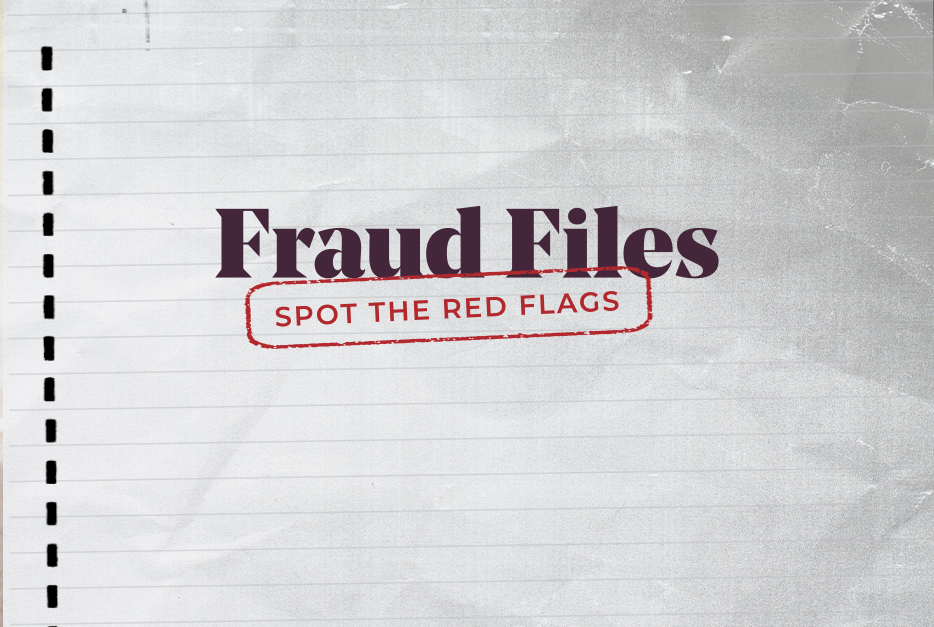Fraud Files: Five things you don’t want for Christmas
Scam 1: The nonexistent charity
Jessie and Sarah made a point of donating to charity every year as a way of giving back during the holidays. So, when Sarah received an email inviting her to support a charity that provides Christmas gifts to underprivileged families, it seemed like the perfect opportunity. The charity had a website that appeared legitimate, complete with heartwarming testimonials and pictures of smiling children. Little did the couple know, the only people who would be benefiting from their donation were the scammers who had created the fake charity.
Red flags to watch out for:
- Unsolicited emails, calls, or text messages asking for donations
- Charities that aren’t listed on the Canada Revenue Agency’s charity database
- Aggressive sales tactics that make you feel guilty for not donating
Scam #2: The holiday parcel mixup
When it came to holiday shopping, Ben preferred the convenience of making purchases online over rushing from store to store. A few days after making some online purchases, Ben received a delivery notification in his email inbox. According to the notification, there was an issue with one of his parcels, and they needed him to update his shipping and payment information. Ben wasn’t sure which parcel it was, but he wanted to make sure his package arrived in time for the holidays, so he clicked the link and entered his credit card information.
Unfortunately for Ben, this wasn’t a legitimate notification. It was a phishing scam designed to steal his personal information. Rather than click the link, Ben should have gone to the original website to check the status of his package.
Red flags to watch out for:
- Emails or text messages that include tracking links
- Requests for personal information, custom taxes, or delivery fees
- Requests that are intentionally vague about your parcel, or that give information about a package you haven’t actually ordered.
Scam #3: The one-sided gift exchange
Who doesn’t love a holiday gift swap? Hillary was excited when she received an invite to a Facebook group that was organizing an online gift exchange. The concept was simple: Hillary would send 10 gifts of her choice to 10 strangers in the group, and she would receive 10 gifts in return from members in the group. It sounded like a fun way to try out some new products, and Hillary willingly joined. But when the time came to do the exchange, it turned out to be more “gift” and less “swap,” because nothing came for her in the mail.Red flags to watch out for:
- Unexpected invitations from people you don’t know
- No way of verifying who received your gift, and when you’ll get a gift in return
- Exchanges that require you to give out personal information to participate
Scam #4: The cutest puppy to never exist
Gary was confident that this Christmas would be a year his daughter, Sadie, would never forget. After years of listening to her beg for a pet, Gary planned to surprise Sadie with every child’s Christmas wish — a puppy. And who could pass up the brown-eyed, lovable golden retriever that popped up on Gary’s Kijiji feed?With Christmas quickly approaching, Gary knew he had to move fast. The seller assured Gary that the puppy was still available, but she had multiple people interested and needed a $500 deposit to show that Gary was serious. Unfortunately, shortly after he sent the Interac e-Transfer®, the ad — and his money — disappeared.
Red flags to watch out for:
- The seller requires a deposit to “hold” your purchase
- The seller has no previous reviews or seller history
- The seller refuses to give you more information or send additional pictures of the item
- The item is listed at an extremely discounted price
- Seller profile is posting every week for months advertising the same puppies, and answers questions with vague responses asking you to send them private message
Scam #5: The too-convenient holiday job
For Tara, a university student working toward her accounting degree, the Christmas break was the perfect opportunity for her to earn some extra cash. After doing some searching online, she came across a job opportunity that would not only let her work from home, but it also advertised a great hourly wage. There was just one catch — the employer required Tara to make an upfront payment to get her set up with the home office supplies she would need for the job. Unfortunately, after Tara sent the money, the “employer” stopped responding.Red flags to watch out for:
- No formal interview or hiring process
- An unusually high wage for the job type
- Requests for upfront payments for job supplies or training fees
Best practices to keep your card safe:
• Inspect the merchant terminal to ensure it hasn't been tampered with. Trust your gut, if something looks off, do not insert your card.
• Be wary of shoulder surfers who peer over your shoulder to find out your PIN. Block the PIN pad from other’s view.
• Always keep your card in a safe place to prevent "tap” fraud. You can do this by placing your cards in RFID (radio frequency identification) blocking holders or wallets.
Key takeaway: Scammers are constantly looking for opportunities to take advantage of the busy holiday season. Keep an eye out for red flags before sending any money or personal information.
Sometimes, we can help spot and stop a fraud scam before a member loses money. Unfortunately, this is not always the case. Preventing fraud is an important responsibility we all share. SCU strongly recommends that members remain vigilant and learn to protect themselves from falling victim to fraud. Visit our Fraud Prevention Centre to learn more about fraud and how to spot it, and if in doubt, reach out to SCU for help at 1.800.728.6440.
Does this story sound familiar?
If this has happened to you, or someone you know, here’s how you can report it: scu.mb.ca/fraudprevention/reportfraud



